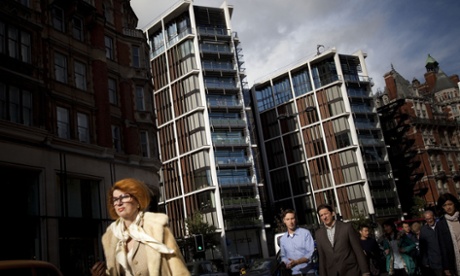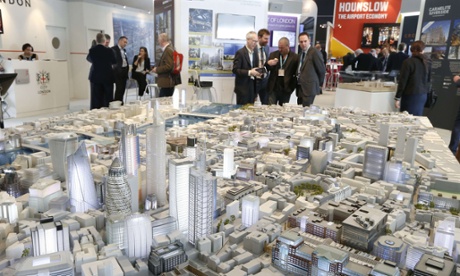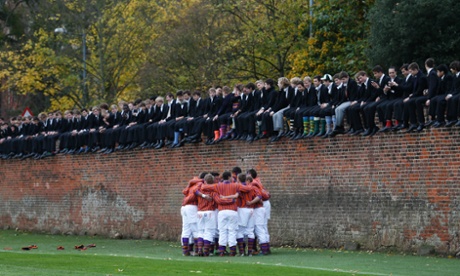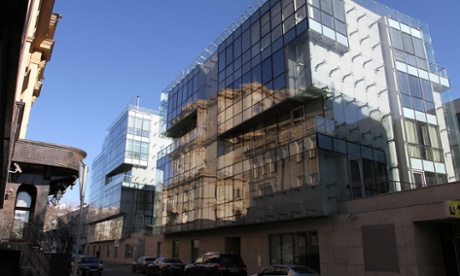
What is it about London that wealthy Russians can't get enough of? Thanks in no small part to the crisis in Ukraine, their takeover of the London property market is growing apace.
According to the Financial Times (£), well-to-do Russians and Ukrainians too "are trying to shift more cash into London property ... amid indications that eastern European oligarchs are using the capitals housing market to conceal their assets from international sanctions". (And this despite a recent "tax crackdown" by George Osborne, apparently.)
Property experts JLL predict that "Russian capital flight could quadruple year-on-year" and it's not as if the starting point was low: estate agency Knight Frank puts Russians top of the list of foreign buyers of £1m-plus London homes in 2013 (spending somewhere north of £500m). But why London? The only thing for it was to head to Moscow and see for myself in between a few games of chess.
I wasn't just obsessing about oligarchs. There are reckoned to be almost a hundred Russian billionaires who made their fortune in the political and economic chaos that followed the collapse of the Soviet Union in the early 1990s, but 100 oligarchs can't buy London. There had to be more to it than that.
Naturally, Moscow was hosting an international property show while I was there, and I found myself in a workshop at which eager would-be sellers of UK property heard from experts steeped in the ways of wealthy Russian buyers. Kim Waddoup, who has lived in Moscow for more than 20 years and runs the property show, had a warning for his audience: "Nothing in Russia is quite as it seems."

This is, he stressed, still a developing country, but one with a rapidly growing middle class that has a lot of disposable income which they are keen to invest abroad. Some Russians may actually want to live abroad not least to escape those long, bitterly cold winters but for many, said Waddoup, it is primarily a hedge against the periodic crises that afflict an economy overly dependent on oil and gas. Russians trust bricks and mortar in posh parts of London more than they trust the rouble.
But why London, I asked Waddoup after his presentation. "When Russia was first opening up, suddenly everybody saw the market potential here, and patterns were created which people have followed, he said. One example was the French arriving with wine before that we had really wonderful Georgian wines, and nobody knew about French wine. Then suddenly it was, No, I'm going to have French wine; it's much better than the Georgian stuff. Similarly, the UK became a place of class, of style. It was where the spies hung out and did their thing."
According to Waddoup, it started with tourism to the UK, and education Russians are very keen on English public schools, apparently. And in the past 10 years, this has evolved into property buying. Other countries, notably Spain and Cyprus, offer fast-track residency (and eventual citizenship) to buyers of properties of a certain value in Cyprus's case, just 300,000 (£245,000) but even without such sweeteners, the UK is more than holding its own. Odd to think that Kim Philby is doing his bit for the British economy.
Waddoup emphasised it is in fact the Russian middle class, not the much-vaunted oligarchs, who are driving the overseas property market. "It has been relatively easy to create businesses here over the past 20 years. People have worked hard, earned a lot of money and now they want to spend it. Just look at shoe shops and restaurants: when a bill in a restaurant comes to over 200, I'm screaming. But rich Russians buy five bottles of wine and don't even finish them." Their philosophy is, apparently: "We have the money. We use it."
A tax rate of 13% and extremely low utility costs mean this growing middle class have plenty of cash. They don't trust Russian banks, so a lot of business is done in cash; one insider said hed heard of flats being bought on a credit card. The preference for cash also helps with tax evasion: even at 13%, the average Russian thinks paying tax is a crime. And if they can get the money out of the country to a safe haven like the UK, they will. Few rich Russians keep their money in roubles, and the cash flight out of Russia is enormous alarming even, for an economy that is now stuttering.

Carlo Walther, chief operating officer at Russian property website Idinaidi (it means go find), fleshed out these trends for me over breakfast in a friendly, kitschy cafι filled with Soviet memorabilia in central Moscow. Russians, he said, shouldn't just be thought of as buying in the UK. Many retire to Bulgaria, Spain and France; others opt for New York and Florida. Indeed, the UK is only 10th on Idinaidi's list of the most popular places to buy however, it is the key destination for what Walther calls the upper-middle class.
"Something like 30% of Russians buying in the UK are doing it to educate their children," he told me, explaining that they will have a holiday home in Spain or France as well as a base in London and a flat in Moscow. "To some extent it's about showing off, but they also see it as their pension. In the 90s here, pensions collapsed and people lost all their savings, so there's still the culture that, if you can take money out of the country, do it just in case."
Walther said Russian buyers are much shrewder than they are portrayed in the media. Oligarchs paying silly money for trophy properties does not reflect the reality of most of the Russians buying million-pound properties in London. "Your average Russian will bargain hard. They have money, but they won't overpay."
When the Soviet Union collapsed, it wasn't just the oligarchs who made money. Everyone who lived in a state flat was able to buy the property very cheaply, creating a property-owning class overnight a remarkable 81% of Russians are owner-occupiers (though judging by the condition of many of the old Soviet tower blocks, they're yet to band together to maintain them).
In central Moscow, the property that people were able to buy is now worth a great deal of money at least, the land on which it stands is. Many are selling up and either moving into the country around Moscow or retiring to a resort abroad. The old blocks are being knocked down and rebuilt as luxury flats for the emerging middle class.

Opposite the restaurant where we talked, a block of million-euro flats was being erected. Three-quarters of properties, Walther told me, are bought with cash here. The mortgage market is still in its infancy and interest rates are prohibitive, with banks only slowly becoming more competitive.
Most foreign observers focus on Moscow and St Petersburg, but economic growth in the regions has been considerable. Walther takes the number of Ikeas as a barometer: three stores in Moscow, but another 14 across Russia. On his website, 15% of transactions are in the capital a big slice of the total, but still only part of the story. "The regions are not one place," he said. "Some are stagnating, but others are powering ahead. There are five or 10 cities, like Yekaterinburg, Kazan, Vladivostok and Magadan, which are growing fast."
The pace of house-building in Russia makes the UK look sclerotic. According to Walther, 2 million new homes were built last year, and half of all transactions are on new properties. Cities are expanding and suburbanising. Expensive new blocks are sprouting in the most desirable central locations, while in the countryside, old wooden dachas are giving way to more imposing properties.
Forget the oligarchs. It is the growing middle class wealthy and mobile that is transforming Russian cities and driving the international property boom. Their financial clout and presence in places such as London explains why western governments have turned to financial sanctions in the conflict over Ukraine. But that clout is also the reason why truly biting sanctions are unlikely to be introduced: London, and other major cities, needs the Russians and their cash too much.


